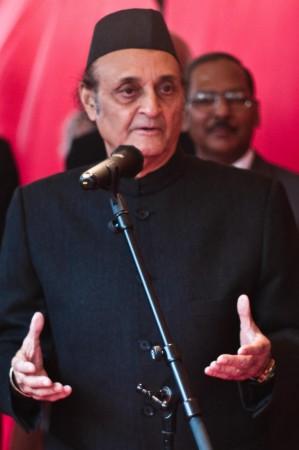Dr Karan Singh, Prince Regent of the erstwhile kingdom of Jammu and Kashmir, has criticized the government for repealing Article 370 in a very cruel manner and said that the Kashmiris felt "gravely shattered" by the sudden move to downgrade the status of Jammu and Kashmir to Union Territory.
In an interview with news website The Print, the former Governor of erstwhile Jammu and Kashmir said that the political process must start in Jammu and Kashmir and its statehood must be restored.
"It shocked Kashmiris, particularly ethnic Kashmiris. Dogras, in fact, welcomed the integration (of Jammu and Kashmir with the rest of India). Now, they (Dogras) are getting worried about jobs and all but Kashmiris certainly felt gravely shattered," Dr Karan Singh, who wore many features in his career, said.
'Article 370 repealed in a cruel manner'
Criticizing the Modi government over the manner in which Article 370 was repealed, Singh said that "it was done in a cruel manner". "It was very drastic and done in a very cruel manner. You shut everyone down. Total lockdown! It was not done after consultation," said Singh, who was minister of health in the Indira Gandhi Cabinet.

He, however, said that there was perhaps no other way to integrate Jammu and Kashmir into India. "But perhaps it was the only way. Kashmiris would not have easily agreed to it," he said.
He said there is a sense of anger in Jammu and Kashmir over repeal of the special status of Jammu and Kashmir, which, he said was promised to the then kingdom by the Union of India. "They wanted to retain the special status promised to them. In fact, Kashmiri leaders wanted to further strengthen it. Special Status is the key," the former diplomat and the Union Minister said.
'Restore Jammu and Kashmir's statehood'
Expressing sadness over downgrading the status of Jammu and Kashmir to Union Territory, Singh said, "Earlier, it was said that Jammu and Kashmir is the crown of India and now it has been demoted to Union Territory. It is even not a state now. So first, the statehood must be restored and political process must be initiated," he said.
The former Union Minister said that he was concerned about the leaders of Kashmir who were placed under house arrest post announcement of the repeal of Article 370 in August 2019 but did not say or do anything as he "didn't want to embarrass Government of India". "I didn't say or do anything because I knew what I would say or do may have a big impact," he said.
Responding to a question on the much-touted integration of Jammu and Kashmir with rest of India, Singh explained that his father Maharaja Hari Singh signed instrument of accession, while other princely states also signed "integration agreements" with the Union of India under the then Home Minister Sardar Patel.

"In our case, we did not integrate ourselves, it was done by Parliament," he said.
He also said that his father wanted to make Jammu and Kashmir an independent state but was forced to accede to India due to invasion of Pakistan. "When my father wrote to Lord Mountbatten, he wrote very clearly that he was considering as to which of the two domanians to join or whether to stay independent and have good relations with both India and Pakistan. He was considering Independence and then his hands were forced by the time of the invasion," he said.
Nehru took Kashmir matter to UN in good faith: Dr Karan Singh
Singh said that India's first Prime Minister Jawahar Lal Nehru took the matter of Jammu and Kashmir to the United Nations in good faith and didn't realize the game being played out by the British. "He did it in good faith and, I think, urged by Lord Mountbatten who said you (Nehru) will be poster boy of post-colonial legacy. It will be a big thing. We thought it was an open and shut case. They (Pakistan) invaded us. We would go there and say they invaded us, not realising that once you enter UN, you would get bogged down. Everyone was playing their own game, especially the British," he said.
Pointing out the ethnic difference between Dogra and Kashmiri, he said he didn't wish to be called a Kashmiri. "Never say that. I am not a Kashmiri. I am a Dogra. I have a great regard for Kashmiris. We have ruled there for over 100 years and have a good relation now. But I am a Dogra, ethnic Dogra," he said.

















